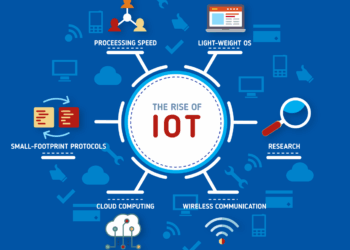The healthcare industry is undergoing a monumental shift with the rise of digital health technologies. From wearable devices that monitor real-time health stats to artificial intelligence that predicts medical outcomes, digital innovations are fundamentally changing how patients receive care. These tools not only enhance the efficiency and effectiveness of medical services but also empower patients to actively participate in their health journey.
In this article, we will explore how digital health technologies are revolutionizing patient care, the key tools making a difference, their benefits, challenges, and what the future holds.
What Are Digital Health Technologies?
Digital health technologies refer to the use of digital tools, software, and systems to support and deliver healthcare services. These include:
A. Mobile Health Applications (mHealth)
B. Telemedicine Platforms
C. Electronic Health Records (EHRs)
D. Wearable Health Devices
E. Remote Patient Monitoring (RPM)
F. Artificial Intelligence (AI) in Diagnostics
G. Blockchain for Health Data Security
H. Robotic Process Automation (RPA)
I. Augmented and Virtual Reality (AR/VR)
J. Genomic and Precision Medicine Tools
Each of these technologies plays a crucial role in improving patient outcomes, reducing costs, and increasing accessibility to care.
Key Technologies Enhancing Patient Care
A. Mobile Health Applications (mHealth)
Mobile health applications have made it possible for patients to manage their health right from their smartphones. These apps allow users to track their medications, schedule doctor visits, monitor their vitals, and receive health education.
Benefits include:
-
24/7 access to health information
-
Personalized health tracking
-
Real-time alerts and reminders
-
Easy access to professional advice
B. Telemedicine Platforms
Telemedicine connects patients with healthcare providers via video or phone, eliminating the need for in-person visits.
Advantages include:
-
Accessibility for rural or disabled patients
-
Reduced travel and waiting times
-
Cost-effective consultations
-
Continuity of care during crises (e.g., pandemics)
C. Electronic Health Records (EHRs)
EHRs are digital versions of patients’ paper charts. They provide real-time, patient-centered records that make information available instantly and securely to authorized users.
Impact on care:
-
Improved coordination among providers
-
Fewer medical errors
-
Streamlined workflows
-
Better chronic disease management
D. Wearable Health Devices
Wearable technologies like fitness trackers, smartwatches, and biosensors monitor physical activity, heart rate, sleep patterns, and even glucose levels.
Key features:
-
Real-time data for patients and doctors
-
Early detection of health issues
-
Improved chronic condition management
-
Motivation for healthy habits
E. Remote Patient Monitoring (RPM)
RPM enables the collection of health data from patients in one location and its electronic transmission to healthcare providers in another location for assessment.
RPM can monitor:
-
Blood pressure
-
Oxygen saturation
-
Blood glucose levels
-
ECG and heart rate
F. Artificial Intelligence in Healthcare
AI is being used to analyze complex medical data, predict disease outcomes, assist in diagnostics, and personalize treatment plans.
Benefits include:
-
Faster and more accurate diagnoses
-
Early detection of diseases
-
Enhanced imaging analysis
-
Reduced administrative burden
How These Technologies Improve Patient Care
Digital health tools contribute to better care in the following ways:
A. Personalization of Treatment
Data from wearables and health records allow for tailored treatment plans that reflect a patient’s unique lifestyle, condition, and needs.
B. Proactive and Preventive Care
With AI and real-time monitoring, clinicians can detect signs of disease early and take preventive action before symptoms become severe.
C. Improved Communication
Digital platforms provide seamless communication between patients and healthcare providers, encouraging continuous and interactive care.
D. Empowered Patients
Access to personal health data encourages self-awareness and proactive engagement, helping patients take ownership of their wellness.
E. Cost Reduction
Digital tools reduce the need for hospital stays, repeated tests, and emergency interventions, lowering overall healthcare costs for both patients and providers.
Real-World Use Cases
Let’s take a closer look at how digital health technologies are already transforming patient care in real-world scenarios:
A. Diabetes Management
Wearable glucose monitors paired with mobile apps help diabetic patients track their sugar levels and receive alerts in real time, reducing the risk of complications.
B. Mental Health Support
AI-powered chatbots and mobile therapy apps offer round-the-clock mental health support, making therapy more accessible and private.
C. Heart Disease Monitoring
Remote ECG and blood pressure monitors allow continuous observation of cardiovascular health, enabling timely intervention.
D. Post-Surgical Recovery
Mobile platforms and video consultations help patients recover safely at home while still under virtual supervision of medical teams.
Challenges and Considerations
Despite the benefits, digital health comes with its own set of challenges:
A. Data Privacy and Security
With sensitive health data moving online, cybersecurity threats have become a major concern. Providers must ensure HIPAA compliance and robust encryption.
B. Digital Divide
Access to digital health technologies is not equal. Low-income and rural communities may lack access to reliable internet or smart devices.
C. User Literacy
Some patients, especially the elderly, may struggle with using complex applications or navigating digital platforms.
D. Regulatory Compliance
Digital health tools must align with medical and legal standards, including FDA approvals and national health policies.
E. Integration with Legacy Systems
Many healthcare institutions still use outdated systems. Integrating new tech with old infrastructure can be expensive and complex.
Future of Digital Health Technologies
The future of digital healthcare looks promising with ongoing innovations:
A. Predictive Analytics
AI and machine learning will soon be able to predict disease outbreaks, track pandemic trends, and improve public health planning.
B. Blockchain in Healthcare
Blockchain will offer a decentralized and secure way to store and share patient records across providers globally.
C. Virtual Reality in Therapy
VR is being used for pain management, rehabilitation, and cognitive behavioral therapy, offering immersive treatment experiences.
D. Advanced Genomics
Precision medicine will reach new heights through gene-based treatment, allowing even more customized care.
Conclusion
Digital health technologies are not just tools—they are catalysts for a more efficient, accessible, and patient-centered healthcare system. As innovation accelerates, we must ensure that these advancements are inclusive, secure, and ethically implemented. Whether you’re a healthcare provider, a patient, or a tech developer, embracing digital health is the way forward.













